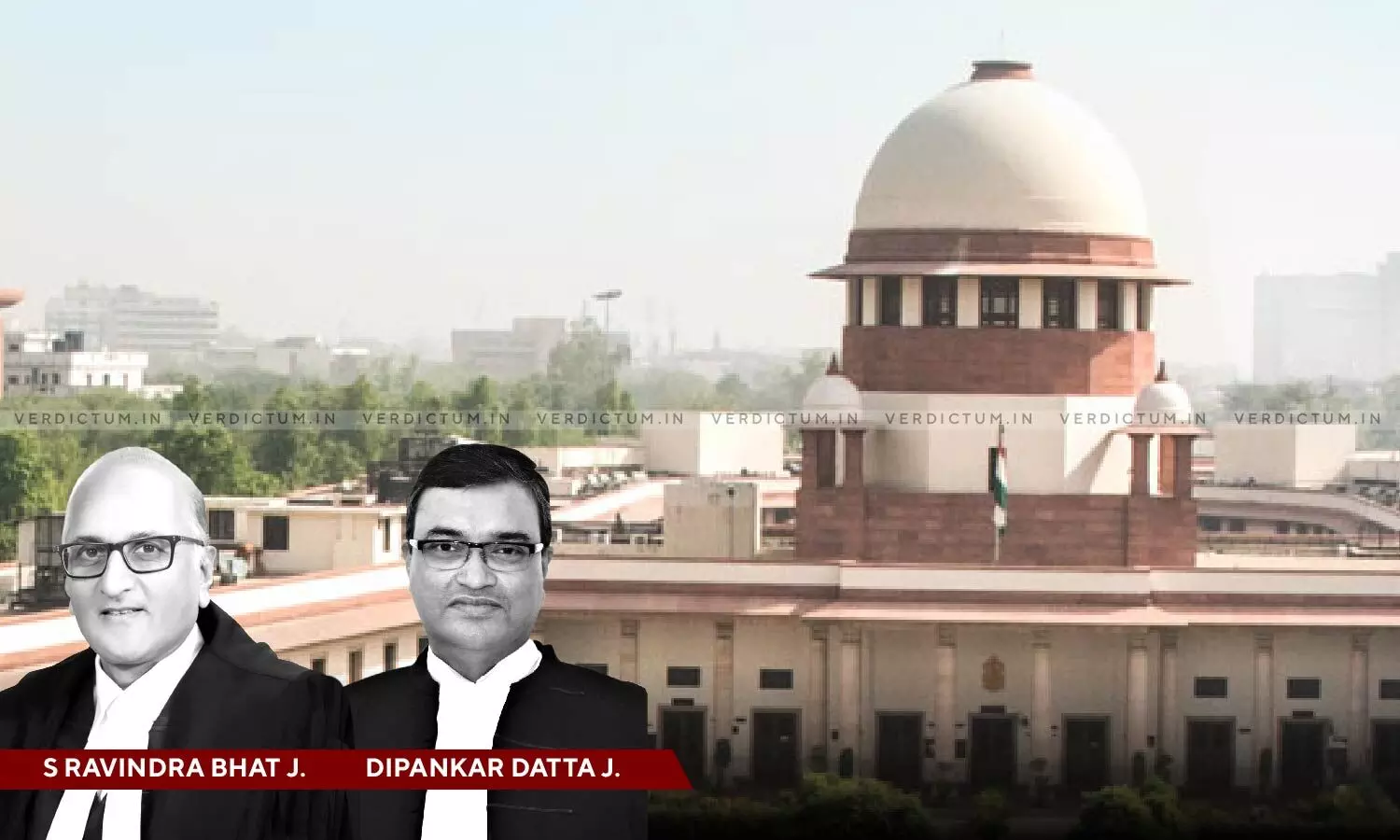
Ruling Of Trial Court & High Court Is Nothing Short Of Intense Appellate Review Which Is Impermissible In Law: SC While Restoring Arbitral Award
 |
|The Supreme Court restored an arbitration award while observing that the ruling of the trial courts and the High Court is nothing short of intense appellate review, which is impermissible in law and beyond the court’s jurisdiction.
The appellant was dissatisfied with a trial court judgment that overturned an award granted earlier in their favor. The award was granted due to a road construction contract dispute in the form of compensation.
A two-judge Bench of Justice S. Ravindra Bhat and Justice Dipankar Datta observed that “In the facts of the present case, the award did not, facially disclose any error of law; damages were awarded in accordance with principles embodied in law, and the findings were based on the evidence placed before the tribunal. The ruling of the trial courts and the High Court is nothing short of intense appellate review, which is impermissible in law and beyond the courts’ jurisdiction.”
The appellant, a contractor for a government project in Maharashtra, faced delays in a canal construction task. Extensions were granted due to non-contractor-related delays. The contractor sought arbitration per the contract, and an arbitrator was appointed by a Civil Judge to resolve extra work disputes who awarded the contractor a significant sum, along with 12% interest from Dec 10, 1988, to arbitration start, and rejected the state's counterclaim. The state challenged this under Indian Arbitration Act Sections 30/33, citing legal misconduct. The trial court revoked the award, leading the contractor to appeal to the High Court, which upheld the decision.
Advocate Vinay Navare appeared for the Appellants and Advocate Rahul Chitnis appeared for the Respondents.
The Supreme Court delved into the relevant contract clauses. It was noted that Clause 54A dealt with dispute settlement procedures, requiring parties to seek written instructions from the Executive Engineer (EE) within 30 days when a work was deemed outside the contract's requirements. If the EE's decision was unsatisfactory, the contractor could appeal to a higher authority, with a 60-day deadline for their decision. Clause 55A stipulated arbitration matters, and Clause 58 covered compensation for delays.
The Court emphasized that the state's argument that the claim crystallized upon issuance of the final bill on Dec 14, 1992 was valid. The contractor's payment-related concerns were first raised with the EE in 1988, with subsequent unsuccessful appeals to the Superintending Engineer. Therefore, the claim submitted to the civil court in January 1995 was within the limitation period.
Addressing the question of claims not adhering to the 30-day period post-contract foreclosure, the Court held that due to multiple extensions and mutual consent leading to foreclosure, this argument wasn't applicable. The contractor's request for foreclosure in their letter dated April 06, 1990 was accepted by the department, making the delay in submitting the claim reasonable.
The state's argument that the award granted compensation for water release disruptions was examined. It was noted that the award took into account the specific periods when disruptions occurred and the tribunal consciously refused compensation for certain periods during water releases in the canal.
Regarding the state's contention about procedural defects due to undisclosed heirs, the Court deemed this issue as non-substantial since the trial court's judgment had already included all legal representatives of the deceased.
The Court then scrutinized the award, finding it well-supported by evidence and within the arbitrator's discretion. The Court reiterated that interference with awards should be limited to errors of law and that intense appellate review was beyond the court's jurisdiction.
Consequently, the Supreme Court set aside the impugned judgment, restored the award, and directed the state to ensure full payment to the appellant in line with the award within eight weeks. The appeal was allowed, and the appellant was granted costs throughout.
Cause Title: M/s S.D. Shinde Tr. Partner v. Govt. of Maharashtra & Ors.
Click here to read/download Judgment